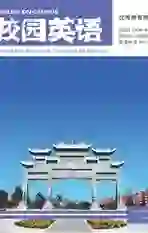America—the Staunch Defender ofFree Market and Free Trade
2016-05-14安军地
安军地
Free market is in contradiction with controlled market whereas free trade is in contradiction with protectionism. A free market is a market that is free of government intervention and regulation, besides the minimal function of maintaining the legal system and protecting property rights, and is also free of private force and fraud. In a free market, property rights are voluntarily exchanged at a price arranged solely by the mutual consent of sellers and buyers who can not force each other or be forced by a third party such as the government. In theory, in a free market price is not decided by force but rather by the law of supply and demand. Free trade is a type of trade policy that permits trading partners to mutual gain from trade as a function of the law of comparative advantage. Under a free trade policy, prices are a reflection of true supply and demand, and are the sole determinant of resource allocation. Free markets contrast sharply with controlled markets or regulated markets, in which governments directly or indirectly regulate prices or supplies, which according to free market theory causes markets to be less efficient. Similarly, free trade differs from other forms of trade policy in which items price can not reflect the true nature of supply and demand. In non-free trade pattern, the allocation of goods and services among trading countries are determined by artificial prices which are the result of protectionist trade policies, whereby governments intervene in the market through price adjustments and supply restrictions. Such government interventions generally increase the cost of goods and services to both consumers and producers.
Americas firm support for free market and free trade directly reflects its conservativeness in the economic crisis. Its known to all that in history America is energetic in shaping new international financial system. After the World War Two, America actively forged the well-known Bretton Woods system that gave the US currency—which was linked to gold—the dominant position in the world economy and allowed the US to run a trade deficit without having to devalue. And owing to its sponsorship at that time, America naturally grasped the decisive power in the systems two main organizations—the IMF and the World Bank. Actually, it robbed the worlds leadership from Great Britain which was dominant between the 18th and the 19th century by its masterpiece at that time, namely, free market and free trade. Contrary to its activeness during the postwar period, America performs much more conservatively in this time crisis. Americas reluctance to change the current financial system is easily discovered through then-President Bushs and President Obamas low profile in advocating the global economic summit. Instead of asking to reform the system, America tries to defend the current free market and free trade which is in its best interest. In order to protect the system, American government even unprecedentedly throws thousands of billions of tax payers good money after bad to revive world peoples confidence to its economy as well as to the free market and free trade theory. Both then-President Bushs $168 billion stimulus package and President Obamas $800 billion recovery plan are extraordinary in Americas history.
However, Americas free market and free trade policy is to force other countries to open their market widely and to accept a large amount of Americas competitive products through which America can make numerous profits. When America enthusiastically calls for protection of free market and free trade worldwide, it virtually adopts some protectionism-trend measures such as President Barack Obamas stimulus package which contains a Buy-America clause in order to boost its domestic demand. So it definitely proves Americas so-called free market and free trade is nothing but a tactic that persuades other countries to open the door for Americas products but not in return opens its own door simultaneously.
In a word, aiming at defending the global economic system, America will become relatively conservative. In order to protect its vested interest and vested privilege, America doesnt want to take any bold and fundamental measures to change the global economic status quo.
References:
[1]Northrup Clark, Cynthia, The American Economy: A Historical Encyclopedia (ABC-CLIO, 2003), 121.
[2]Downes, John Goodman, Jordan Elliot, Dictionary of Finance and Investment Terms (Barrons, 1995).
